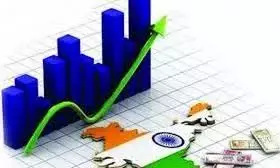‘Pancham da preferred quiet birthdays’
On R.D Burman’s 77th birth anniversary (June 27), The Asian Age contacted Franco Vaz — one of his drummers for 17 years.;

On R.D Burman’s 77th birth anniversary (June 27), The Asian Age contacted Franco Vaz — one of his drummers for 17 years.
On July 27th, social media was spilling with tribute posts dedicated to the musical legend Rahul Dev Burman. Radio stations and television channels observed his 77th birth anniversary with special programmes dedicated to his life and his music. The man himself, however, was not big on birthdays, says Franco Vaz, who was Burman’s drummer for 17 years, “Pancham da never had too many birthday parties. He was mostly engrossed in music. As far as I remember, he usually went out of Mumbai and at times, out of India too, to celebrate quietly. I never attended his birthday parties but I know that he didn’t care much about birthdays.”
Franco first met R.D. Burman when Sachin Dev Burman had taken ill, and the mantle of taking care of his recordings was passed on to his son. R.D. composed music for 331 films from the 60s to the 90s and he was known as a man who valued his band of musicians more than anything else — the story about him refusing to eat Chinese because his troupe wasn’t served the same, is a known one. “Yes, he was a large-hearted man, he loved to cook for us,” Franco fondly recalls. “He would usually cook chicken or mutton and other dishes that we liked. His life was full of love and affection and he loved sharing food with musicians,” adds Franco, who played on albums like Kasme Vaade (1978), Zamane Ko Dikhana Hai (1981), Hum Kisise Kum Nahin (1977) and more.
He says that Burman’s musicians couldn’t wait to enter the studio during the recording sessions. Everyday they heard a new sound — from rock and roll to Latin music to Indian classical and more. Burman’s love for Western music took him to San Francisco in 1987. He collaborated with American musicians for an album titled Pantera — a Latin-American-Indian music album financed by Pete Gavankar, which set the New York radio rolling. Franco says, “Pancham da was an ardent follower of Carlos Santana, Phil Collins and Harry Belafonte among others. We were a family of 70-80 musicians. It was fun because we didn’t know what would be the sound of the day — it was different everyday. With him around, the atmosphere was always friendly.” Franco recalls how they would be initially briefed about the sound over tea and coffee. “We used to discuss ideas over casual conversations. He used to specify the feel he wanted in the music. We would then have a couple of rehearsals before recording. It was that simple,” he says.
Franco continues, “He used to come up with a few notes and develop them with the help of arrangers. One never knew what he would do in a studio, anything could happen. The rehearsals of the songs used to happen in his sitting room. I am honoured to be a part of his dream team of legendary musicians.”
Franco played in a tribute concert on June 24. “It was organised by Nitin Shankar, a percussionist who was the chief rhythm assistant for Burman. I played a drum solo before Aaja Aaja (Teesri Manzil, 1966)which was originally played by Leslie Gudinho back then. When I played that, I could feel him around. Now, when I think about the advancement of technology, I cannot imagine what would have happened had he been alive. Even the sky wouldn’t have been the limits,” says Franco.


